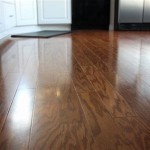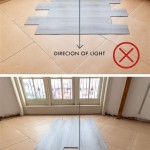Choosing the Best Flooring for Stairs: Essential Considerations
Selecting the right flooring for your stairs is crucial to ensure safety, durability, and aesthetic appeal. With a wide range of options available, it can be overwhelming to make the best choice. Here are some essential aspects to consider when choosing the perfect flooring for your stairs:
1. Safety and Slip Resistance
Your stairs should provide a safe and slip-resistant surface to prevent accidents. Opt for materials with a high coefficient of friction, such as carpet, cork, or slip-resistant tile or hardwood.
2. Durability and Wear Resistance
Stairs experience high traffic and wear, so choose materials that can withstand heavy footfall. Carpet is excellent for dampening sound and absorbing impact, while hardwood, laminate, and tile offer durability and scratch resistance.
3. Aesthetic Appeal and Style
The flooring on your stairs should complement the overall design of your home. Consider the color, pattern, and texture of the materials to create a cohesive look. Choose flooring that enhances the architectural features of your stairs.
4. Maintenance and Cleaning
Consider the maintenance requirements of the flooring. Carpet requires regular vacuuming and cleaning, while hardwood, laminate, and tile can be easily swept or mopped. The frequency of cleaning will depend on the material and traffic level.
5. Budget and Cost
Flooring for stairs can vary significantly in cost. Carpet tends to be the most affordable option, while hardwood and stone are more expensive. Determine your budget and choose a flooring that fits within your financial constraints.
6. Subfloor Preparation
Before installing new flooring, ensure that the subfloor is in good condition. This may involve leveling, repairing, or replacing damaged areas. Proper subfloor preparation will ensure the stability and longevity of your stairs.
7. Installation Method
The installation method of the flooring will depend on the material. Carpet requires professional installation, while laminate, hardwood, and tile can be DIY-friendly with the right tools and skills.
8. Lighting and Natural Light
The lighting conditions in your stairwell can affect the appearance of the flooring. Choose materials that will enhance the natural light or artificial illumination. Darker colors can create a more intimate feel, while lighter colors reflect light and make the space appear larger.
9. Noise Reduction
If noise reduction is a concern, consider materials such as carpet or cork that absorb sound. Hardwood and tile tend to be more resonant, so they may not be suitable for homes with open stairways.
10. Additional Considerations
Apart from the essential factors discussed above, here are some additional considerations for choosing the best flooring for stairs:
- Treads and risers: Determine the right dimensions and shape for your stair treads and risers.
- Trim and moldings: Use trim and moldings to enhance the aesthetics and safety of your stairs.
- Stair nosing: Install stair nosing to provide a secure and non-slip edge for your stairs.
- Professional consultation: If you are unsure about the best flooring option for your stairs, consider consulting with a professional flooring specialist.
By carefully considering these essential aspects, you can choose the perfect flooring for your stairs that meets your safety, durability, aesthetic, and budget requirements, creating a beautiful and functional focal point in your home.

What S The Best Flooring For Stairs

What Is The Best Flooring For Stairs Carpetland Usa

What S The Best Flooring For Stairs Pro

What S The Best Flooring For Stairs Direct

Choosing The Best Carpet Flooring For Your Stairs

Choosing The Best For Your Stairs Custom Hardwood Flooring

Choosing Flooring For Basement Stairs The Ultimate Guide

Installing Laminate Vinyl Or Wood On Your Stairs

What S The Best Flooring For Stairs Direct

Choosing The Best Carpets For My Stairs Wood Floors And Specialists Cambridge Art Of Flooring
See Also







